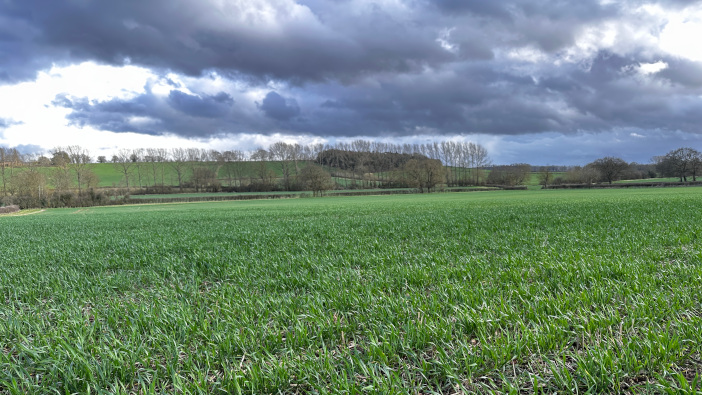Carter Jonas is reporting a rise in average land values in the third quarter of 2024, as the supply of farmland continues to be met with good demand.
The latest Farmland Market Update shows that the average arable land value in England and Wales rose by 0.9% to £9,722/acre, while pasture values climbed 0.7% to a new high of £7,889/acre.
The firm notes that some buyers and sellers have accelerated activity over the past few months in order to complete before the budget on the 30th of October.
This is due to the Prime Minister’s warning that the budget could be painful, however, the extent of the impact on landowners is not known.
As a result, some launches have also been delayed and could instead go on the market in spring when more is known about the tax treatment of agricultural land and property.
“Land values’ upward trajectory is being underpinned by historically low levels of supply and evenly matched levels of demand,” Andrew Chandler, head of rural agency at Carter Jonas, says.
“The market is also attracting more alternative buyers (particularly for natural capital purposes) and is benefitting from the presence of ‘waiting capital’ from rollover funds.
“Many assets are performing well but we are seeing some segments of the market becoming more price sensitive. Therefore, it’s essential that land is realistically priced, as we aren’t seeing values being routinely exceeded anymore, thanks to the increased cost of borrowing and a cautious ‘wait-and-see’ approach to the upcoming budget.”
The company adds that the economic backdrop has improved considerably in the last 18 months. Sophie Davidson, research associate, says: “Although CPI inflation increased slightly, it has fallen dramatically from its peak of 11.1% in October 2022.
“This enabled the Bank of England to lower interest rates in August, marking a positive turning point, and a further base rate cut is likely before the end of 2024.
“We expect lower borrowing costs to boost the housing market (benefitting buyers purchasing land with residential assets), improve cash flow for those with existing debt, and expand the pool of potential buyers who rely on financing.”
Despite the broadly positive steps, the market still faces a level of uncertainty over the budget, notes Andrew.
“Labour’s manifesto set out £9bn in tax rises but there is speculation that the budget could exceed that.
“There is hesitation in the market as the industry anticipates possible scrutiny of capital gains tax and agricultural property relief on inheritance tax, as well as potential cuts to Defra’s budget.
“Although we don’t expect changes to trigger an immediate or significant response from the industry, increased clarity should improve market sentiment.
“Landowners will also be keen to learn more about the tax treatment of land used in environmental schemes as that will play a key role in future land management decisions, as well as sales and purchases.”


